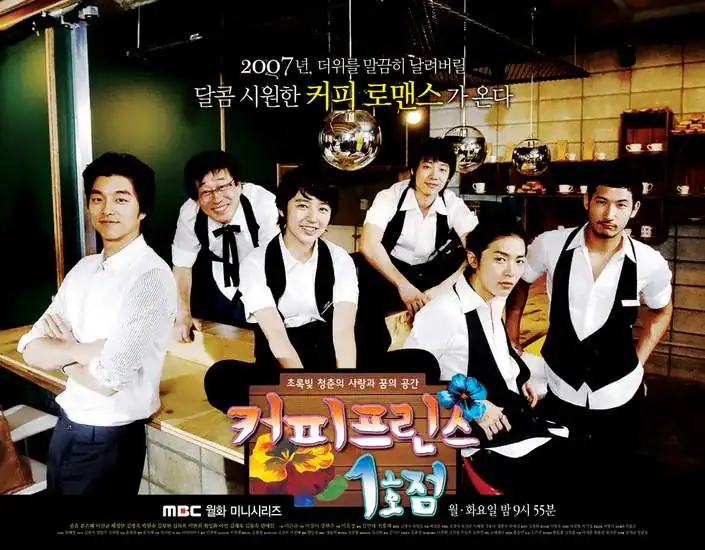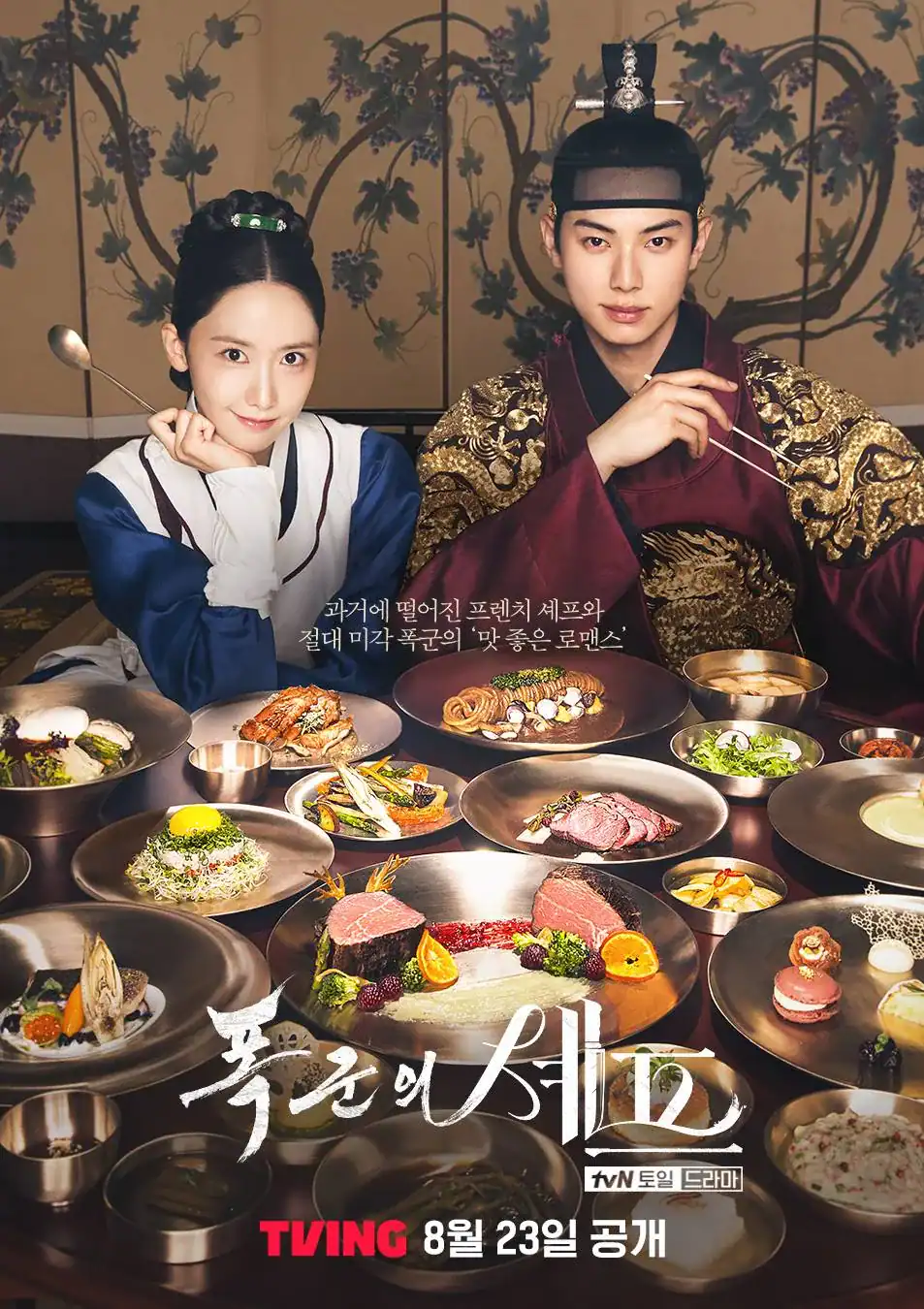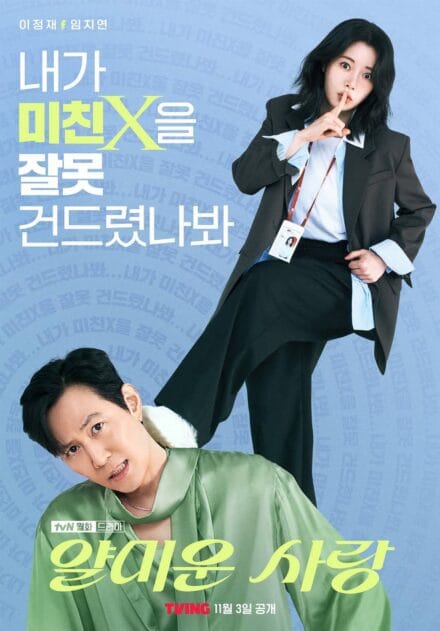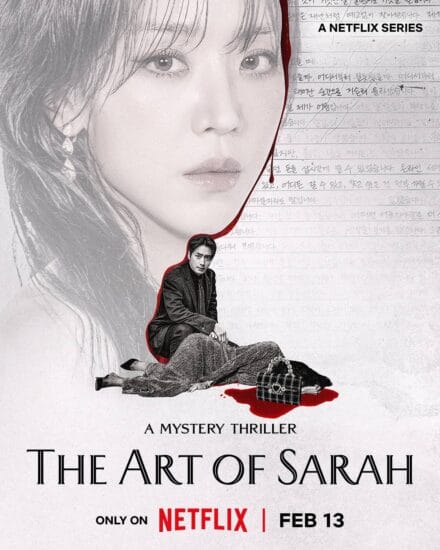Have you ever noticed how the simple question, “Have you eaten?” (밥 먹었어? – bap meogeosseo?) is basically the Korean version of a hug? It’s code for “I care about you,” and it’s that deep connection between food and feeling that makes culinary K-dramas so incredibly satisfying. They’re the perfect comfort watch.
But with a whole menu of titles out there, it can be tough to know which dish to order next. That’s where I come in! Think of yours truly as your K-drama foodie friend who’s already tasted everything and is here to give you the inside scoop. Whether you’re a foodie who wants to see a realistic, high-pressure kitchen or a romance fan who loves a slow-simmered love story, this guide has something for you.
We’re about to slice and dice the best food-themed K-dramas, giving you the plot, the characters, and a no-nonsense review for each. So, grab your favorite snack (you’re gonna need it), get cozy, and let’s find your next delicious obsession.
Course 1: All About the Chef – Dramas Set in the Culinary World
First up are the dramas for those who live for the heat of the kitchen. These stories put the chef’s journey on the front burner, exploring their passion, ambition, and the crazy-stressful world of professional cooking. Expect intense rivalries, food shots that will make you drool, and characters you’ll root for with all your heart.
Pasta (파스타) (2010)
The Recipe (Plot Summary):
This classic drama stars the incredible Kong Hyo-Jin and Lee Sun-Kyun in a sizzling workplace romance set in an Italian restaurant called La Sfera. Kong Hyo-Jin plays Seo Yoo-Kyung, who has spent three long years working her way up from the bottom. The very day she’s finally promoted, a new head chef, Choi Hyun-Wook (Lee Sun-Kyun), storms in. Fresh from training in Italy, he has a fiery temper and one very loud rule: there are no women allowed in his kitchen. He fires all the female chefs on the spot, forcing Yoo-Kyung to fight for her dream and navigate a confusing, spark-filled relationship with the very man trying to kick her out.
The Critic’s Corner (Let’s Talk About It):
Okay, so Pasta is a must-know drama in this genre, and for good reason. The chemistry between the leads is absolutely electric. Their constant bickering and the iconic “Yes, Chef!” dynamic is the stuff of K-drama legend. What’s really cool is how realistic the kitchen scenes are. People who’ve actually worked in fine dining say the show nails the intense hierarchy and pressure. Lee Sun-Kyun is phenomenal as the brilliant, shouting chef you somehow can’t help but love.
Now for the real talk. This drama is from 2010, and it shows. Chef Choi’s “no women in my kitchen” rule is pure sexism, and for many modern viewers, it’s just plain infuriating. The female lead is also a bit of a toss-up. Some fans see her as sweet and resilient, while others get seriously frustrated with how passive and whiny she can be, constantly bending to his will. But even with those issues, the drama happening around the food—the rivalries, the challenges, the passion—is top-tier and keeps you hooked from start to finish.
Wok of Love (기름진 멜로) (2018)
The Recipe (Plot Summary):
Get ready for a wild ride with a powerhouse trio: Lee Joon-Ho, Jang Hyuk, and Jung Ryeo-Won. Lee Joon-Ho is Seo Poong, a star chef at a fancy hotel’s Chinese restaurant who loses everything in one fell swoop—his job, his fiancée, his reputation. Burning for revenge, he marches across the street to a failing, grimy little Chinese restaurant run by a quirky former gangster, Doo Chil-Seong (Jang Hyuk). Their mission: to build the “Hungry Wok” into a success and crush the hotel. Their lives get even more chaotic when they’re joined by Dan Sae-Woo (Jung Ryeo-Won), a bubbly heiress who also hits rock bottom and needs a job.
The Critic’s Corner (Let’s Talk About It):
If you’re looking for a drama that is pure, chaotic fun, Wok of Love is it. This show is a heartwarming, messy, and totally lovable story about found family. The chemistry between the three leads is its secret ingredient. The main romance is adorable and feels natural, but honestly, the bromance between the hot-headed chef and the kind-hearted gangster is the true heart of the show. Jang Hyuk absolutely steals every scene he’s in; Chil-Seong is so charming that many viewers ended up with a massive case of second-lead syndrome.
But, be warned, the story can be all over the place. Reviewers point out that the writing feels scattered, with plot points getting introduced and then disappearing without a trace. This was likely due to the episode count being cut, which left things feeling rushed toward the end. Even so, the sheer charm of the cast makes it an incredibly enjoyable binge-watch. Just don’t watch on an empty stomach—the food scenes are absolutely gratuitous in the best way possible!
Temperature of Love (사랑의 온도) (2017)
The Recipe (Plot Summary):
This slow-burn romance, led by Seo Hyun-Jin and Yang Se-Jong, explores the tricky timing of love. Seo Hyun-Jin is Lee Hyun-Soo, an aspiring drama writer, who connects online with “Good Soup,” a username belonging to On Jung-Sun (Yang Se-Jong), a talented young chef who dreams of opening his own French restaurant. They meet and sparks fly, but life gets in the way. The story explores their romance as they part and reconnect years later, trying to see if their love can finally find the right “temperature” to flourish amidst their demanding careers.
The Critic’s Corner (Let’s Talk About It):
This drama is one you’ll either love or find incredibly slow—there’s not much in-between. Fans of the show rave about its mature and realistic take on a relationship. The dialogue is often praised as the best part; it’s smart, natural, and refreshingly direct without a lot of the usual K-drama misunderstandings. The chemistry between the leads beautifully captures that magical, heart-fluttering feeling of falling in love for the first time.
However, many viewers found this drama to be a total snooze-fest. The biggest complaint is that the plot just meanders for hours with very little happening. For some, the female lead was a source of major frustration, coming across as indecisive and selfish. If you’re not in the mood for a very quiet, character-driven story that focuses on conversations over conflict, you might want to skip this one. But if you are, you might find it to be a beautifully profound watch.
Oh My Ghost (오 나의 귀신님) (2015)
The Recipe (Plot Summary):
Hold on to your hats for this supernatural rom-com! The brilliant Park Bo-Young plays Na Bong-Sun, a painfully shy assistant chef who is secretly in love with her arrogant star chef, Kang Sun-Woo (played by the amazing Cho Jung-Seok). Her life gets a massive jolt when she’s possessed by Shin Soon-Ae (Kim Seul-Gi), a loud, confident, and very thirsty virgin ghost on a mission to… well, not be a virgin ghost anymore. With Soon-Ae in the driver’s seat, Bong-Sun suddenly starts making bold moves on her boss, leaving him completely baffled and unexpectedly intrigued.
The Critic’s Corner (Let’s Talk About It):
Honestly, this drama is just a pure delight. It’s a fantastic mix of comedy, romance, and even a bit of mystery that keeps you guessing. The chemistry between Park Bo-Young and Cho Jung-Seok is off the charts—it’s sweet, funny, and their kisses are famously realistic for a K-drama. But the real MVP here is Park Bo-Young. Her ability to switch between timid Bong-Sun and brazen Soon-Ae is mind-blowing; you completely believe she’s two different people in one body. Plus, the kitchen crew is absolutely hilarious and adds so much warmth and life to the show.
Is it perfect? Not quite. The central romantic conflict—who is the chef actually falling for, Bong-Sun or the ghost?—can get a little messy and confusing for some viewers. Also, the mystery surrounding the ghost’s death feels a bit slow in the middle and then gets rushed at the very end. But those are minor quibbles in what is otherwise a near-perfect drama. For many, it’s a solid 10/10 and a fantastic entry point if you’re new to food-themed K-dramas.
Gourmet (식객) (2008)
The Recipe (Plot Summary):
Based on a famous Korean comic (manhwa), this drama stars Kim Rae-Won as Lee Sung-Chan, a cheerful and naturally gifted chef. He and his highly ambitious stepbrother, Oh Bong-Joo (Kwon Oh-Joong), both work under their father at a legendary restaurant that serves traditional Korean royal cuisine. When their father announces a competition to decide who will inherit the restaurant, a deep-seated rivalry between the brothers comes to a boil, forcing them to confront tradition, ambition, and what it truly means to cook with heart.
The Critic’s Corner (Let’s Talk About It):
If you’re a true food lover, especially someone curious about traditional Korean food, Gourmet is a must-watch.It’s a heartfelt and educational journey into the world of royal cuisine, butchery, and the stories behind the food. The cooking competitions are genuinely exciting and beautifully filmed, making you appreciate the artistry involved. The characters feel very real; Kim Rae-Won is incredibly charming as the lead, and even the antagonists have motivations you can understand.
That said, it’s an older drama (from 2008), and its pacing reflects that. If you’re not fascinated by the long, detailed scenes of food preparation, you might find it a bit slow. The romance subplot also takes a backseat and is considered pretty dry by some viewers, who wished the show had focused exclusively on the food and family conflict. But if you’re looking for a drama with real emotional depth and a deep respect for culinary tradition, Gourmet is a truly satisfying meal.
Feast of the Gods (신들의 만찬) (2012)
The Recipe (Plot Summary):
Get ready for some high-stakes makjang (over-the-top drama) served with a side of exquisite royal cuisine. Set in the elite restaurant Arirang, the story revolves around two women whose lives were swapped by fate. Sung Yu-Ri plays Go Joon-Young, a culinary genius with an absolute palate who is unknowingly the true heir to Arirang. Competing against her is Ha In-Joo (played by the fantastic Seo Hyun-Jin), the woman raised in her place, who will do anything to protect her secret. They clash in a series of intense cooking battles, all while tangled up in a dramatic love square.
The Critic’s Corner (Let’s Talk About It):
If you love your food themed K-dramas extra spicy with a ton of conflict, this one’s for you. Feast of the Gods is a full-blown melodrama that keeps you on the edge of your seat with its constant twists and turns. Seo Hyun-Jin is brilliant as the villain you love to hate—she plays the desperate, conniving rival perfectly. The food is gorgeous, and the love triangle is juicy enough to keep you guessing until the very end.
Be prepared, though—the makjang can be a bit much. The conflicts are often over-the-top, and the characters sometimes act in ways that are just plain infuriating. At 32 episodes, it’s also a long commitment, and many viewers felt the ending was a little disappointing and didn’t provide enough closure. Think of it as a guilty pleasure watch—it might not be a perfectly balanced meal, but it’s definitely addictive.
Eccentric! Chef Moon (유별나! 문셰프) (2020)
The Recipe (Plot Summary):
This is a healing drama wrapped in a rom-com. Shinhwa’s Eric Mun stars as Moon Seung-Mo, a celebrity chef who moves to the quiet Seoha Village to grieve after his parents die in a sudden accident. His quest for peace is hilariously interrupted by Yoo Yoo-Jin (Go Won-Hee), a world-famous fashion designer who’s lost her memory after a car crash. With no memory of her glamorous past, she’s now just a quirky, troublemaking villager. Together, this unlikely pair—along with an adorable little girl who shows up—start to build a new kind of family.
The Critic’s Corner (Let’s Talk About It):
This drama is at its best when it leans into its sweet, simple, healing vibes. The scenes in the village, with Chef Moon cooking comforting food and the main couple slowly falling for each other, are just lovely and heartwarming. The child actress, Go Do-Yeon, is an absolute scene-stealer and brings so much joy to the screen. The lead couple is really endearing, and the quirky villagers provide just the right amount of comedy without being annoying.
Where the show stumbles is with its totally unnecessary corporate villain subplot. It feels completely out of place in a gentle healing drama and comes across as boring and generic. It’s as if the writers felt they had to add some high-stakes drama, but it just detracts from the show’s core strengths. Also, its portrayal of the female lead’s eating disorder was criticized for being overly simplistic. Overall, if you can forgive (or fast-forward through) the boring business stuff, it’s a very sweet and enjoyable watch.
Foodie Fun Fact: Eric Mun playing a star chef is a case of perfect casting. He is a legendary cook among K-pop idols and actors, a skill he famously showcased as the main chef on the beloved reality series “Three Meals a Day.” On the show, he was nicknamed “E-Chef” for his incredible ability to whip up gourmet, multi-course meals from scratch in a rural setting, cementing his reputation as a true culinary master.
Sweet Munchies (야식남녀) (2020)
The Recipe (Plot Summary):
Here we have a drama with a very messy, very modern premise. Jung Il-Woo plays Park Jin-Sung, a charming late-night bistro chef. When his father is hit with huge medical bills, Jin-Sung gets desperate. He hears about a new cooking show looking for a gay chef and decides to lie about his sexuality to land the job. This throws him into the orbit of the show’s rookie producer, Kim A-Jin (Kang Ji-Young), and a successful fashion designer, Kang Tae-Wan (Lee Hak-Joo), who is a regular at his bistro and is secretly in the closet himself.
The Critic’s Corner (Let’s Talk About It):
Alright, we need to talk about this one. Sweet Munchies is a drama that will make you feel things—mostly frustration. Let’s start with the good: Lee Hak-Joo is absolutely phenomenal as Kang Tae-Wan. His performance as a gay man navigating his career, his feelings, and his identity is the shining star and the only reason many people finished the show. Jung Il-Woo also looks fantastic in the cooking scenes, which are beautifully shot.
Now for the big “but.” The premise is… problematic. The main character lying about being gay for personal gain is a tough pill to swallow, and he comes across as incredibly selfish and unlikable. Both he and the female lead are criticized for being naive and oblivious, showing almost no character growth. Many viewers found the story offensive for how it trivialized the struggles of the LGBTQ+ community, especially a scene where the fake gay chef lectures the actual gay man on coming out. If you decide to watch, go in for Lee Hak-Joo’s award-worthy performance, but be prepared for a story that will likely make you want to yell at your screen.
Foodie Fun Fact: It’s no coincidence that Jung Il-woo is so convincing as a chef! He is a famous food lover and a highly skilled cook in real life. Like Yoon Eun-hye, he has also been a fan-favorite competitor on the cooking show “Stars’ Top Recipe at Fun-Staurant,” where he has won multiple times with his creative recipes. His passion for food is 100% authentic!
Course 2: Food-themed K-Dramas with a Prominent Restaurant Setting
Sometimes, the drama isn’t just about the chef; it’s about the place itself. The restaurant, pub, or ramen shop becomes the heart of the story—a safe haven where a found family of misfits comes together, dreams are born, and life-changing connections are made over shared meals. These are the dramas that give you that cozy, “welcome home” feeling.
Itaewon Class (이태원 클라쓰) (2020)
The Recipe (Plot Summary):
This drama was a cultural phenomenon, and it all starts with one man’s unshakeable resolve. Park Sae-Ro-Yi, played by the one and only Park Seo-Joon, is a man whose life is destroyed by the powerful CEO of a food conglomerate, Jangga Co. After being wrongfully expelled and serving prison time, he emerges with a plan for revenge. His weapon of choice? A tiny, humble pub named DanBam, which he opens in the vibrant, diverse neighborhood of Itaewon. He gathers a loyal crew of fellow misfits—including a genius sociopath manager, Jo Yi-Seo (Kim Da-Mi)—to help him take on the Goliath that is Jangga Co.
The Critic’s Corner (Let’s Talk About It):
Let’s talk about the hype a little. Itaewon Class has one of the strongest starts of any K-drama, period. The first few episodes are a gut-punch of emotion and injustice that will have you rooting for Sae-Ro-Yi with every fiber of your being. He is an incredible character—principled, loyal, and inspiringly stubborn—and watching him build his dream from nothing is pure satisfaction. The show also gets major points for tackling social issues like racism and gender identity, which felt fresh and important.
However… and this is a big however… the drama tends to divide people in its second half. The laser-focused revenge plot that hooked everyone at the beginning gets seriously sidetracked by a love triangle that many viewers found forced and completely lacking in chemistry. The female lead, Yi-Seo, is especially polarizing. While some see her as a strong, savvy character, many others found her obsessive, rude, and frankly, a little creepy. The story starts to drag, and some character development feels rushed or non-existent. My advice? Watch it for the incredible, inspiring underdog story and for Park Seo-Joon’s phenomenal performance. Just be prepared for a romance that might leave you cold.
Foodie Fun Fact: While Park Sae-ro-yi was building his pub from the ground up, Park Seo-joon has real-life experience working in a restaurant setting! He was a key cast member on the hugely popular reality show “Youn’s Kitchen,” where he worked as a server and kitchen assistant in a Korean restaurant set up in Spain. He was praised for his hard work and quick learning in a real, high-pressure kitchen environment.
The Uncanny Counter (경이로운 소문) (2020)
The Recipe (Plot Summary):
At first glance, Eonni’s Noodles is just a popular local restaurant known for its delicious food. But in reality, it’s the secret headquarters for the “Counters,” a group of demon hunters with supernatural abilities. The team—a tough ex-cop, a human spirit-detector, and the restaurant’s chef who acts as the group’s anchor—gets a new recruit in So Mun (Joe Byeong-Gyu), a disabled high school student who is unexpectedly given immense physical power. Together, they serve up noodles by day and kick evil spirit butt by night.
The Critic’s Corner (Let’s Talk About It):
If you want a show that is just pure, unadulterated FUN, this is it. The Uncanny Counter, based on the webcomic of the same title, is a thrilling ride from start to finish. It perfectly blends superhero action, fantasy, mystery, and comedy into one addictive package. But the absolute best part of this drama is the Counters themselves. Their found family dynamic is the beating heart of the story. Watching this mismatched group of people bicker, train, and genuinely come to love and protect each other will make your heart swell. You will adore this squad!
The show isn’t flawless, though. Many viewers agree that while the first half is perfection, the story loses a bit of steam in the second half. It gets bogged down in a pretty standard political corruption plot and moves away from the more exciting “spirit of the week” format. This led to some plot holes and repetitive moments, especially after a mid-season writer change. But honestly, even with a slightly wobbly second act, the love you’ll have for these characters makes it more than worth the watch.
Cool Guys, Hot Ramen (꽃미남 라면가게) (2011)
The Recipe (Plot Summary):
Also known as Flower Boy Ramen Shop, this is a classic from the “Flower Boy” series that is pure, delightful chaos. Yang Eun-Bi (Lee Chung-Ah) is a university student training to be a teacher. Cha Chi-Soo (a young and charming Jung Il-Woo) is the arrogant, ridiculously pampered heir to Korea’s biggest food company. Through a series of hilarious and fateful encounters, these two, along with a gentle giant “Pillar” (Lee Ki-Woo) and a couple of other flower boys, end up inheriting and running a tiny ramen shop together.
The Critic’s Corner (Let’s Talk About It):
Looking for a light, funny, and utterly charming rom-com? You’ve found it. This drama is a blast from the past that still holds up because of its fantastic humor and incredible cast chemistry. It takes all the standard K-drama tropes—the rich jerk, the plucky poor girl, the love triangle—and playfully winks at them, never taking itself too seriously. The ramen shop becomes this wonderful, cozy hub where this eclectic group becomes a true family. Jung Il-Woo is absolutely hilarious as the clueless chaebol learning about life and love, one bowl of ramen at a time.
Of course, being a 2011 drama, it comes with a side of cheese. The plot isn’t exactly deep, and some of the humor (there are a lot of poop jokes) can be a bit silly. The female lead can also be a point of contention; some viewers love her quirky, relatable nature, while others find her to be a childish klutz. But if you’re in the mood for something that will just make you laugh and feel good, you can’t go wrong with this delightful bowl of comfort.
Late Night Restaurant (심야식당) (2015)
The Recipe (Plot Summary):
This drama is the very definition of a “healing” watch. Based on the beloved Japanese manga Shinya Shokudo, the story is set in a mysterious little restaurant that only opens from midnight to 7 a.m. The owner, a quiet and observant man known only as “Master,”(Kim Seung-Woo) has no set menu. He will cook anything his customers ask for, as long as he has the ingredients. Each 30-minute episode introduces us to a different customer—a gangster with a heart of gold, a struggling student, lonely office workers—and tells their story through the one dish that holds special meaning for them.
The Critic’s Corner (Let’s Talk About It):
If your soul needs a bit of soothing, please watch this drama. It’s not about big, dramatic plot twists or epic romances. It’s a collection of quiet, humane, and incredibly heartwarming short stories about everyday people. The episodic format makes it the perfect show to unwind with at the end of a long day; you can just pop in for one story and leave feeling comforted. The food itself is a main character, and the show does an amazing job of making you feel the warmth and love that goes into every dish. You can practically smell it through the screen.
This is definitely a slow-paced show, which might not be for everyone. If you need high stakes and fast-moving plots, you might find it boring. But if you appreciate subtlety and have the patience to let these gentle stories unfold, you’ll be rewarded with a beautiful and memorable experience. It’s one of those rare dramas that you’ll wish was a real place you could visit.
Mystic Pop-up Bar (쌍갑포차) (2020)
The Recipe (Plot Summary):
Welcome to the most magical food cart you’ve ever seen! Wol-Ju (Hwang Jung-Eum) is the feisty, 500-year-old owner of a mysterious pop-up bar (pocha). As punishment for a sin in her past life, she must help 100,000 troubled souls by entering their dreams to resolve their grudges. She’s assisted by the goofy former afterlife detective Chief Gwi (Choi Won-Young) and a sweet part-timer, Han Kang-Bae (Yook Sung-Jae), a young man with the unique ability to make people spill their secrets with a single touch.
The Critic’s Corner (Let’s Talk About It):
This drama is a sparkling gem. It’s a perfect mix of fantasy, heartfelt emotion, and laugh-out-loud comedy. At only 12 episodes, it’s a quick and incredibly satisfying watch. The best part is the core trio—Wol-Ju, Chief Gwi, and Kang-Bae form the most chaotic and endearing found family. While there are romantic subplots, the show’s main focus is on healing, family, and learning to let go of life’s grudges, which is so refreshing. Each episode tells a different customer’s story, and each one is a mini-masterpiece of emotion that will have you both crying and laughing.
The only minor critique is that, because it’s so short, some of the bigger, overarching plot twists near the end can feel a bit rushed. It packs a lot of story into its runtime and could have benefited from a little more room to breathe. But that is a tiny complaint for a show that is otherwise so creative, warm, and full of heart. Also, can we talk about Hwang Jung-Eum’s gorgeous, modernized hanboks? Her costumes are a feast for the eyes all on their own!
Course 3: A Taste of History – Culinary Sageuks
Ready to travel back in time? This course is for those who love the epic sweep of a historical drama (sageuk) combined with the sensory delights of the culinary world. We’re talking about royal kitchens, ancient recipes, and characters whose passion for food changes the course of history. These food-themed K-dramas offer a gorgeous look at Korea’s past, serving up stories that are as rich and layered as the royal court cuisine they feature.
Jewel in the Palace (대장금) (2003)
The Recipe (Plot Summary):
Okay, we have to start with the absolute LEGEND. Based on the true story of a girl named Jang-Geum,(Lee Young-Ae) this epic 54-episode drama takes us back 500 years to the Joseon Dynasty. In a time when society was incredibly rigid and male-dominated, Jang-Geum starts as a lowly kitchen maid in the royal palace. Through sheer talent, intelligence, and an unbreakable will, she overcomes endless social discrimination and political schemes to first become a top royal cook, and then, astoundingly, the king’s personal physician.
The Critic’s Corner (Let’s Talk About It):
There’s a reason Jewel in the Palace is one of the most beloved and internationally famous K-dramas of all time. It’s a powerful, inspiring story of a woman who smashes every glass ceiling in her path. For the first 20-ish episodes, you’ll be treated to some serious food porn as you get a deep dive into the fascinating world of the royal kitchen. The story is thrilling, the characters are richly developed (even the villains have depth), and the bonds of friendship and mentorship are truly beautiful. The romance is a very, very slow burn, but the few moments Jang-Geum shares with her love interest are incredibly sweet and memorable for many fans.
But truth be told, 54 episodes is a marathon, not a sprint. The biggest critique of this drama is its pacing and the sheer amount of palace politics. Many viewers find the middle section, which is filled with endless, tedious scenes of officials scheming in rooms, to be a real slog. The main character also faces a relentless barrage of suffering; just when you think she’s safe, another plot is hatched against her, which can become exhausting and feel repetitive. It’s an amazing drama, but you need to go in with patience and maybe a willingness to use the fast-forward button during the political meetings.
Heo’s Diner (허식당) (2025)
The Recipe (Plot Summary):
What happens when Joseon’s first-ever food columnist gets zapped 400 years into the future? That’s the fun premise of this recent web-drama starring EXO’s Xiumin. Heo Gyun is a genius writer with an aesthetic sense from the Joseon era who finds himself exiled. While escaping assassins, he time-travels to modern-day Seoul, where he’s found starving in front of a small diner run by Bong Eun-Sil. Together, this unlikely pair—the man from the past and the woman of the present—start running the restaurant.
The Critic’s Corner (Let’s Talk About It):
As a short and sweet 10-episode drama, Heo’s Diner is a fun, light watch if you’re looking for something that doesn’t require too much brainpower. The male lead is the undeniable highlight; Xiumin’s portrayal of the earnest, naive, and brilliant Heo Gyun is incredibly charming and keeps you engaged. The villain is also praised for being perfectly slimy and detestable. The culture shock moments are handled in a fun way, and it’s an easy show to binge.
However, the show’s biggest weakness is its female lead. Many viewers found her character to be frustratingly naive and gullible for a modern woman, blindly trusting the obvious villain for way too long. The script also gets repetitive, with the leads falling for the same tricks over and over, which can be painful to watch. It’s a decent filler drama, especially for time-travel fans, but it’s held back by some frustrating character choices.
Mr. Queen (철인왕후) (2020)
The Recipe (Plot Summary):
Get ready to laugh until you cry. In modern times, Jang Bong-Hwan is a cocky, free-spirited male chef working at the President’s Blue House. After a freak accident, his soul is transported back to the Joseon era… and finds its way into the body of the new Queen, Kim So-Yong (played by the incomparable Shin Hye-Sun). Now, he/she must navigate the treacherous politics of the royal court, deal with a seemingly gentle but secretive King Cheoljong (Kim Jung-Hyun), and figure out how to survive as a woman—all while craving ramen and trying to introduce modern cooking to the royal kitchen.
The Critic’s Corner (Let’s Talk About It):
If I could recommend only one historical comedy, it would be this one. Mr. Queen is an absolute masterpiece of humor. Shin Hae-Sun gives one of the best comedic performances you will ever see; her portrayal of a modern man trapped in a queen’s body is nothing short of spectacular. The show is brilliantly funny, mixing laugh-out-loud physical comedy with witty dialogue, but it also has a surprisingly compelling plot filled with political intrigue and genuine heart. The romance that develops between the king and the “new” queen is both hilarious and surprisingly touching.
Honestly, it’s hard to find any major faults with this one. Some viewers found the first episode a little slow to get into, but once you push past that, it’s a non-stop joyride. It’s the kind of show that sets the bar incredibly high for all other dramas. It’s engaging from start to finish, the entire cast is fantastic, and you’ll find yourself completely charmed. Just watch it. Trust me on this one.
Bon Appétit, Your Majesty (폭군의 셰프) (2025)
The Recipe (Plot Summary):
A modern, cheerful French chef named Yeon Ji-Young (Lim Yoon-A) wins a cooking competition, but her prize is a bit unexpected: she’s somehow transported back to the Joseon Dynasty. There, her food catches the attention of King Yi Heon (Lee Chae-Min), a tyrant with an extraordinarily sensitive palate. Impressed by her fusion cuisine, he brings her into the palace to be his personal chef, forcing her to navigate court politics and the whims of a dangerous king.
The Critic’s Corner (Let’s Talk About It):
Let’s be real, this drama based on the webnovel Yeonsankunui Chefro Salanamki (link in Korean) is a visual feast. The food sequences are glorious, with cinematic close-ups that are guaranteed to make you hungry. The lead actor, Lee Chae-Min, is incredibly charismatic as the tyrant king, balancing intimidation with a playful, comedic side that has won over many hearts. If you’re looking for a beautiful show with a handsome king and lots of food porn, this will definitely deliver.
However, the story itself is where things get bland. Many, many reviews call this drama overhyped, pointing to a weak script that has no real substance. The plot feels like an afterthought, with political intrigue being teased and then ignored for most of the show, only to be messily resolved in a rushed finale. The romance is also criticized for having no buildup and a lack of chemistry between the leads. It’s a classic case of style over substance—a gorgeous dish that ultimately tastes a bit empty.
Honorable Mention: Your After-Dinner Coffee
Sometimes, a place is so iconic it becomes a character itself, even if the menu is simple. After all that feasting, we need a good cup of coffee to round things out. This legendary drama isn’t about five-star cuisine, but the cozy, life-changing magic of a neighborhood coffee shop.
Coffee Prince (커피 프린스 1호점) (2007)
The Recipe (Plot Summary):
This is one of the iconic, must-watch food-themed K-dramas and beyond. Go Eun-Chan (Yoon Eun-Hye) is a hardworking tomboy who is constantly mistaken for a boy. To make ends meet, she takes a job at a new coffee shop run by the rich and aimless Choi Han-Gyul (the one and only Gong Yoo). The catch? The cafe, named “Coffee Prince,” only hires good-looking men. Eun-Chan decides to keep up the charade to get the job, leading to a hilarious and surprisingly profound story about friendship, dreams, and a love that challenges all expectations.
The Critic’s Corner (Let’s Talk About It):
There is a reason Coffee Prince is still on every “best dramas of all time” list more than two decades after it aired. It’s pure magic. What makes it so special is how incredibly real it feels. The gender-bender plot could be silly, but it’s grounded in such authentic characters and everyday struggles that you completely buy into it. The chemistry between Gong Yoo and Yoon Eun-Hye is legendary—it’s sweet, funny, sexy, and feels completely natural.
But what truly elevates this drama is how it handles Han-Gyul’s emotional journey. His struggle as he falls for Eun-Chan, believing she’s a man, is treated with so much heart and sincerity. The moment he decides to love her regardless of gender is one of the most touching and iconic scenes in K-drama history. The entire ensemble cast is delightful, making the coffee shop feel like a real place with a real found family It’s a warm, inviting, and timeless classic that reminds you to savor life’s simple pleasures.
Foodie Fun Fact: Here’s a fun tidbit that makes Yoon Eun-hye’s performance even more impressive: in real life, she is a phenomenal, professional-level cook! She has showcased her amazing skills on Korean cooking competition shows like “Stars’ Top Recipe at Fun-Staurant,” often wowing judges with her creativity. It adds a whole new layer to her role as Go Eun-chan, who was just learning the ropes of the food and beverage world, doesn’t it?

Gastronomy K-dramas Addicts: Your Table is Ready
And there you have it—a full-course meal of the most delicious food-themed K-dramas out there! We’ve journeyed from the high-pressure, sizzling kitchens of modern-day star chefs to the cozy, welcoming ramen shops and pop-up bars where found families are formed. We even took a trip back in time to taste the rich, complex flavors of Joseon’s royal court.
Each of these dramas, in its own unique way, reminds us that food is never just food. It’s memory, it’s passion, it’s revenge, and most importantly, it’s the language of love. It’s the care packed into a simple bowl of noodles and the history simmered in a royal stew.
Hopefully, this food-themed K-dramas list has filled your plate with plenty of exciting options and given you all the ingredients you need to pick your next perfect binge-watch. The only question left is, what are you craving now? A sweet, healing story to soothe the soul? A spicy tale of ambition and rivalry? Or a timeless classic that feels like a warm hug?
What’s Your Favorite Dish?
Now it’s your turn to join the conversation! This is our K-drama foodie family, after all.
- Did your favorite culinary drama make the list?
- Is there a hidden gem you think everyone needs to know about?
Drop your thoughts, recommendations, and even your favorite drama-inspired snacks in the comments below. I read every single one and would love to hear from you!
And if this guide about food-themed K-dramas helped you find your next delicious obsession, don’t keep it to yourself! Share it with a friend who loves K-dramas as much as you do. Sharing is caring, especially when it comes to good food and great stories.
Happy watching, and bon appétit!








Leave a Comment